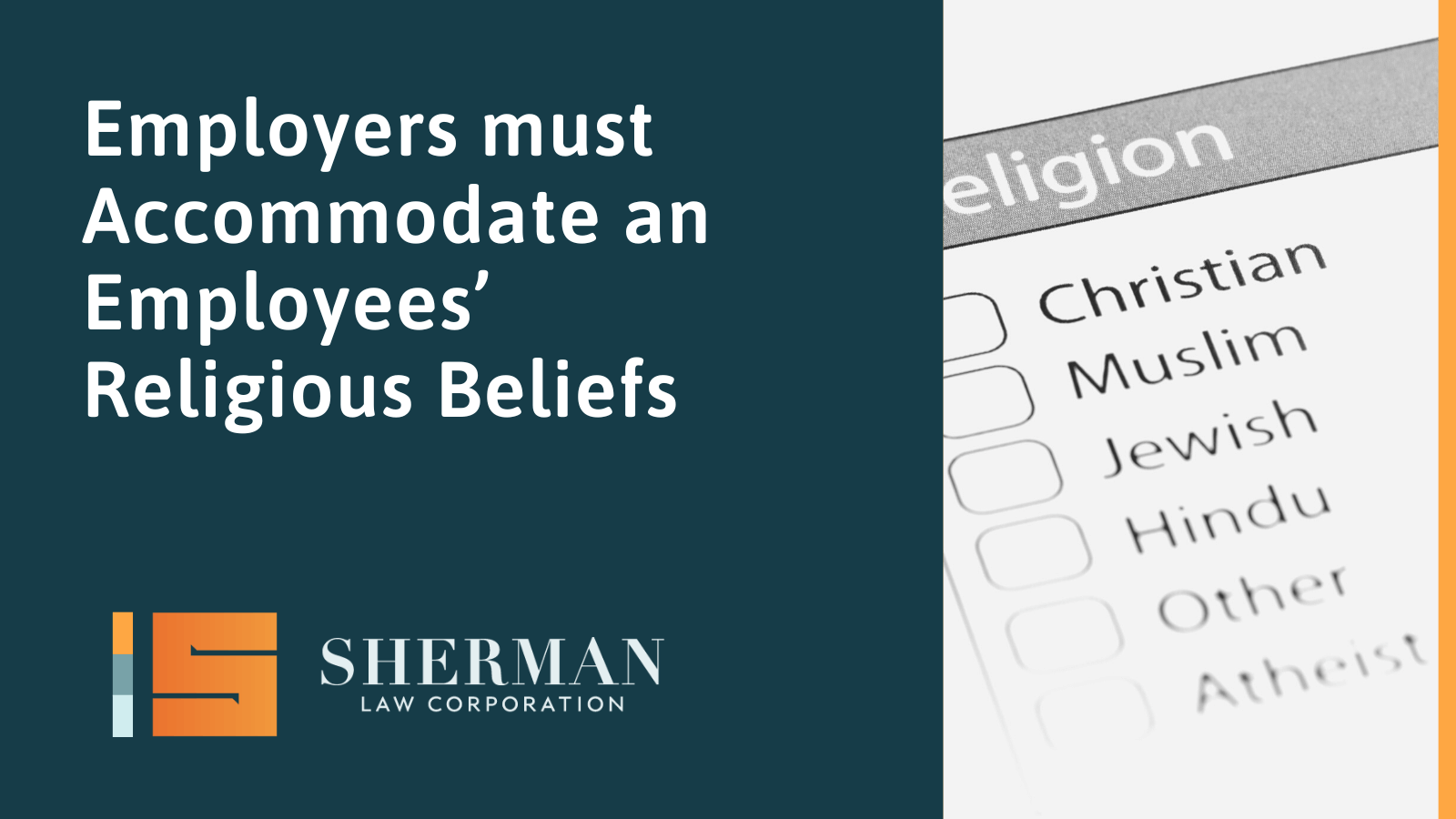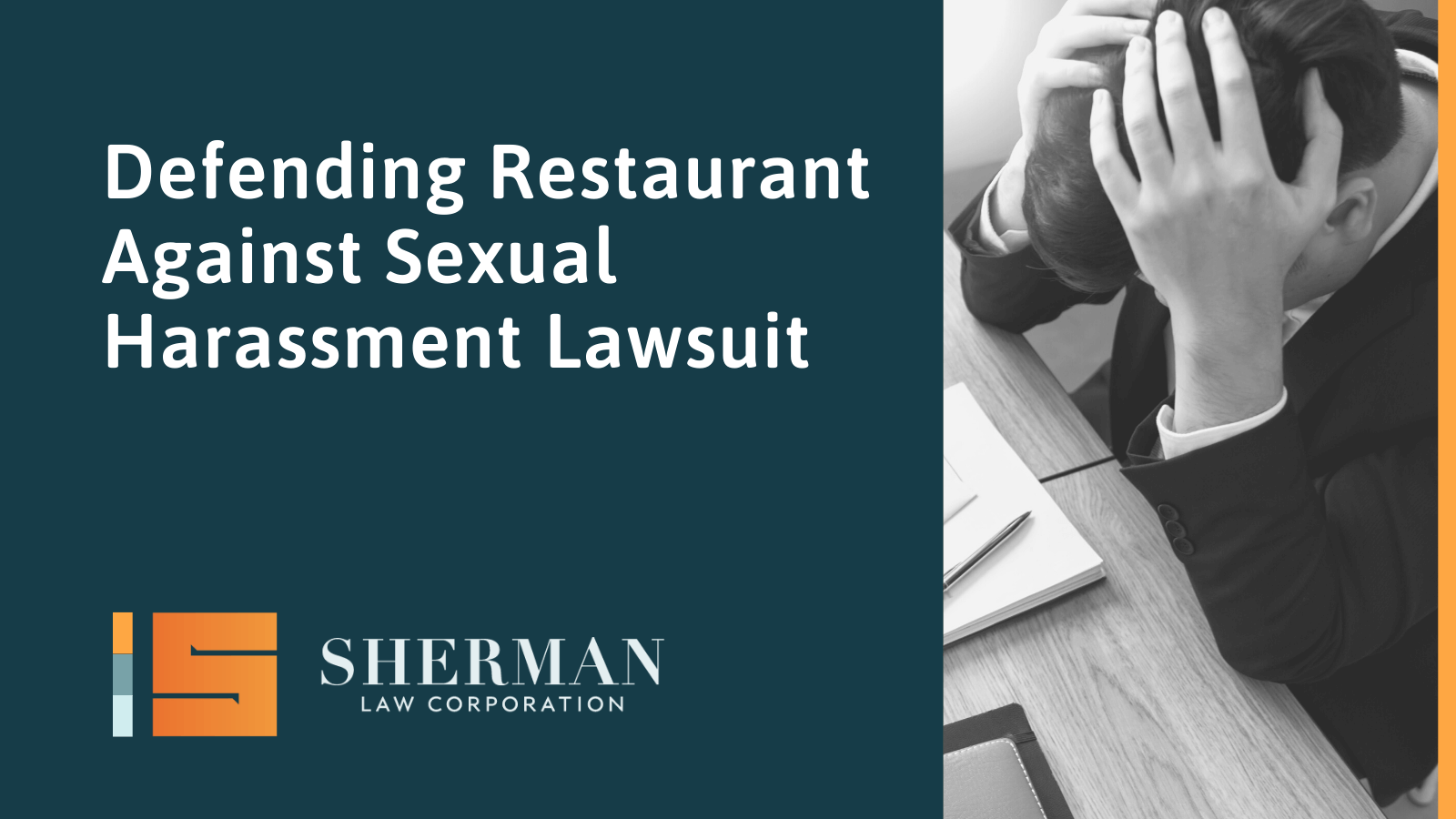
– Unless Doing So Would “Result in Substantial Increased Costs in Relation to Conduct of Business”
The question of religious beliefs in a place of business has been in debate for some time, and a recent case that went before the United States Supreme Court examined that very issue.
From California employment attorney Lisa Sherman, here are the details of the case and what it could mean for California employers going forward.
The Case
In Groff v. DeJoy, 143 S.Ct. 2279 (2023), Plaintiff, United States Postal Service (“USPS”) “Rural Carrier Associate” Gerald Groff, refused to work on Sundays, because it was a day of rest and worship in accordance with his Evangelical Christian beliefs.
After an agreement between USPS and Groff’s union (the National Rural Letter Carrier’s Association) was made, USPS required its employees, including Groff, to make deliveries on Sundays and holidays. The agreement specified a particular order in which USPS employees would be called to work on Sundays. First would be part-time “Assistant Rural Carriers,” then volunteers, and last would be any available carrier who would be called on a rotating basis. This last category included Groff.
With Groff unwilling to make Sunday deliveries, USPS made other arrangements, including requiring other employees (including the postmaster) to pick up Groff’s deliveries. This arrangement continued for nearly two years, with Groff receiving progressive discipline each time he missed a Sunday shift.
Groff eventually resigned in 2019 and brought suit against USPS under Title VII of the Civil Rights Act of 1964, arguing that USPS could have accommodated his Sunday practice “without undue hardship on the conduct of [its] business.”
The district court granted summary judgment for USPS, and the Court of Appeals for the Third Circuit affirmed. The Third Circuit held that it was “bound by” the United Supreme Court’s holding in Trans World Airlines Inc. v. Hardison. 432 U.S. 63 (1977). This holding, as construed by numerous lower courts including the Third Circuit, interpreted Title VII’s “undue hardship” standard to mean any effort or cost that is “more than…de minimis.”
Both Groff and USPS agreed that the “de minimis” reading of Hardison was incorrect, but they disagreed on what should replace it. Groff, contended that a more employee-friendly reading of undue hardship should be interpreted to mean “significant difficulty or expense,” while USPS believed that the phrase “substantial expenditures” or “substantial additional costs” better accorded with Title VII. Groff petitioned for a writ of certiorari.
Supreme Court’s Decision
Reversing the Third Circuit’s ruling for USPS and disagreeing in part with both parties’ suggestions, the United States Supreme Court on June 29, 2023 held that “more than a de minimis cost, as that phrase is used in common parlance, does not suffice to establish undue hardship under Title VII.”
Rather than overrule Hardison, the Court reached this decision by construing Hardison “to mean that undue hardship is shown when a burden is substantial in the overall context of an employer’s business.”
The Court explained that “[t]his fact-specific inquiry comports with both Hardison and the meaning of undue hardship in ordinary speech.” In practice, when “[f]aced with an accommodation request like Groff’s, it would not be enough for an employer to conclude that forcing other employees to work overtime would constitute an undue hardship. Consideration of other options, such as voluntary shift swapping, would also be necessary.”
The Court left it to lower courts to apply the “clarified” de minimis standard to specific contexts.
Takeaways for California employers
Employers must be reminded that their obligation to reasonably accommodate their employees extends not only to employees’ disabilities, but also to employees’ religious beliefs.
Before Groff, religious accommodations requests could be denied if they would impose “more than a de minimis cost.” In practice, this often meant employers could deny even minor accommodations like coverage for occasional absences or relaxed dress codes.
Now, under the new Groff standard, an employer must show that costs of an accommodation are “substantial” in relation to the conduct of the particular business. This fact-intensive inquiry means an employer will now need to consider numerous potentially relevant factors when making an accommodation decision: from the size of the business, to the nature of the work, and the costs of operating the business.
Contact Sherman Law Corporation today
For more information on accommodating religious requests, feel free to contact Lisa Sherman at lisa@sherm-law.com or (323) 488-2087.




